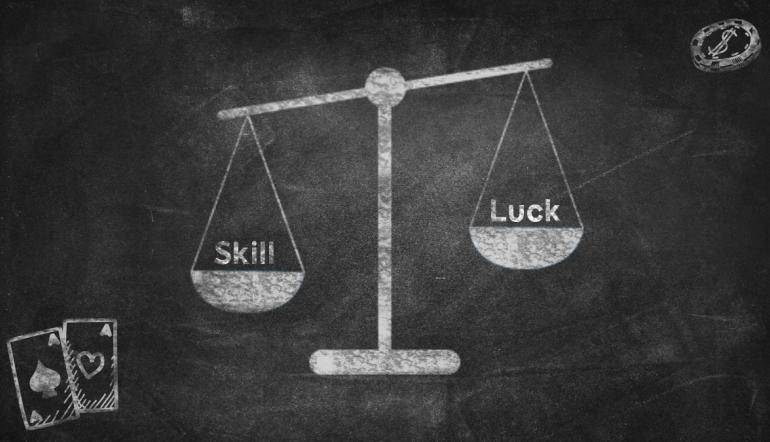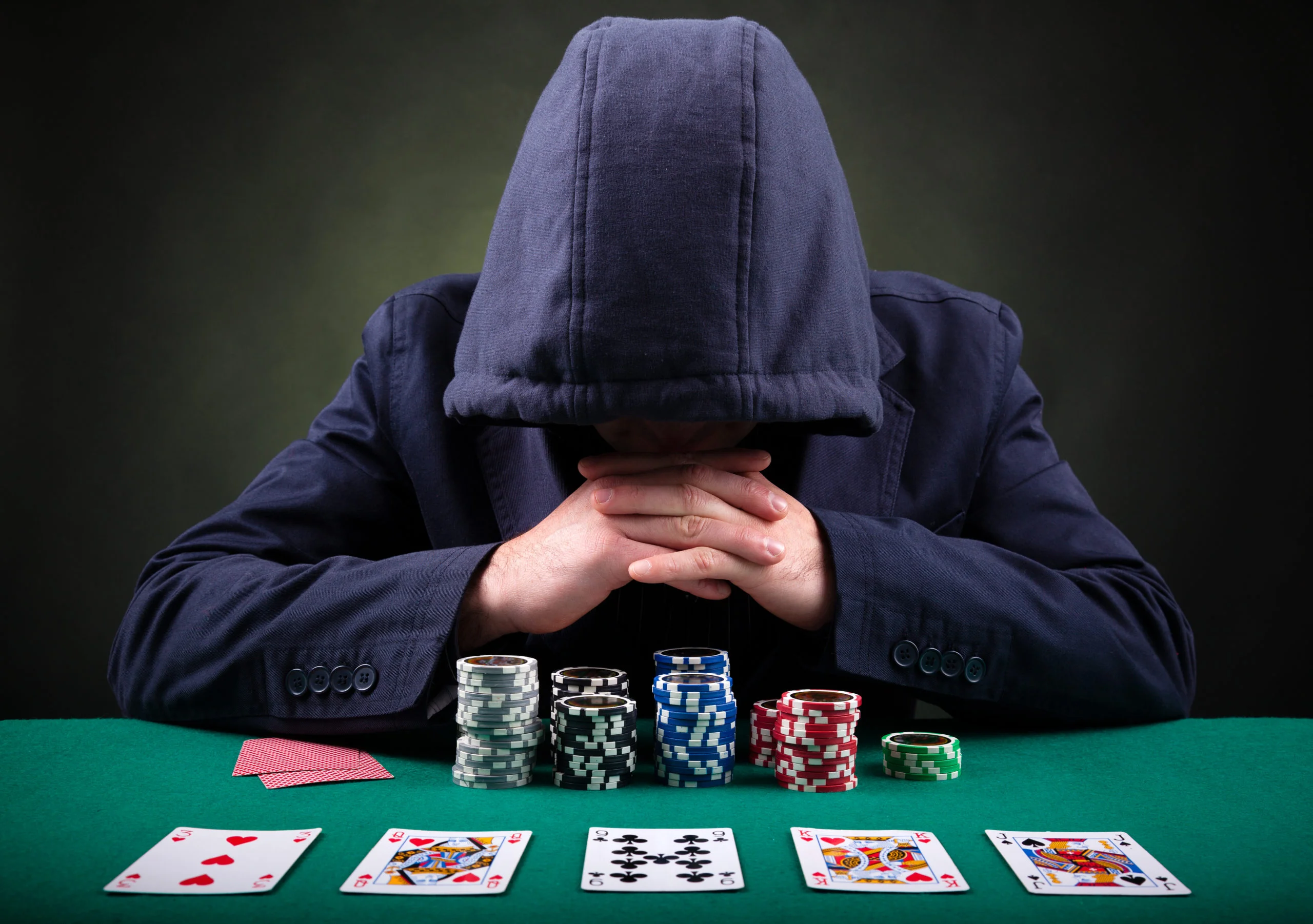Can poker be a metaphor for life? Many would say yes. In both cases, we face unpredictable situations, have to make decisions based on incomplete information and manage risk. Often it seems that life "deals us a bad hand". But are they really that bad? In poker, the player with the best cards doesn't always win - strategy, discipline and perseverance are important. The same applies in life. Now let's look together at whether life really is like a poker game - and if so, how to play it best.
1.Uncertainty and making decisions based on incomplete information
In life and in poker, we never have all the information we need to make a decision with 100% certainty. Our actions are, to some extent, the risks we take. We take these actions based on our past experience. We try to evaluate the information in front of us. We can analyse them, but we can never be absolutely sure how it will turn out. In poker, a player never sees his opponent's cards, so he has to rely on the strategy he uses.
So how can we better manage uncertainty in decision-making and minimize risk? The first step is to try to gather all the available data you have. It will help if we first observe and analyse situations. Then try to estimate the probabilities of possible scenarios that may occur. If new information comes to light during the course of a game or life, it is important to be flexible and be able to change strategy. What should not be forgotten is emotions. If we rush into a decision in emotion, it can lead to mistakes and even loss. Let us wait for the emotion to subside. Breathe it out, do not not try to remove it, persevere - and when it passes, decide with a clear head!
2.Luck vs. skill - "Fortune favours the prepared mind and that says it all."
Now let's answer this honestly: is luck or skill more important? Neither of these factors should be overlooked. The two go hand in hand - if we have both, we are successful. But on which does long-term success depend most? Just like in poker, in life a player can be dealt a great hand and win, even if he plays it mediocrely. It's the same in life. Some people get better "starting conditions" in the beginning, but even in the best ones, if one doesn't know how to handle them, one can lose. On the other hand, if a player is adaptable, disciplined, and can learn from mistakes, he can progress one step at a time and eventually get above the horizon where he starts to do better.

3. Manage risk and patience - "It is not always right to bet all-in on one opportunity."
Sometimes it pays to wait for a better or different opportunity. Successful progressive players understand that risk needs to be managed, not blindly exposed. What can happen if we are impatient? When we act rashly, we often ignore important information, underestimate risk, and make mistakes that could have otherwise been avoided. If a player is impatient, this can lead to more mistakes. A player may start bluffing hastily and play with weak hands, risking more than he should and thus losing in the long run. Losses lead to frustration and failure. However, if a player doesn't get rash and give up, he may be in for a good time.
The question here is: how can we improve our patience? The first step and the foundation is to become aware of our own impatience. Then we can work with several techniques, such as exposing ourselves to situations in which we know we are impatient. Impatient people often want an immediate result. For example, practicing delaying rewards also helps build patience. Every situation in life offers us the opportunity to wait and be patient. For example, in poker, let's practice not to play every hand, but try to wait for advantageous situations. In life, let us try to break up the big goal into smaller goals. Let's concentrate on one area that we will practice more and more each day. Later on, let's combine these pieces together and see if we are closer to the goal. Sometimes it's not so much about the goal itself as it is about the progress we are making. If we let go of the vision of the goal and focus on the smaller steps, it will help us not only in poker, but in life as well.
4. Bluffing and human psychology - "Bluffing is one of the most interesting aspects of poker. Poker has helped me improve my judgment on people and not waste my time with those who aren't worth it."
Bluffing isn't just about cards, it's also about psychology and the ability to read people. How can we learn it and how can we use it to our advantage? Some players may appear overconfident or try to convince others at all costs that it is not a bluff. For some, we may notice changes in their voice, rapid breathing or avoiding eye contact. We should not lie in life, but a little bluff can help us in certain situations.
How can we practice bluffing? Stand in front of a mirror and tell yourself stories - both true and false. Watch how your facial expressions change as you do so. Notice even subtle facial expressions that you weren't aware of before. Watch people, ask questions, you can even go into confrontation and notice their face, their breathing, their body.
"Against some players the bluff works, against others it doesn't." How can we find out? Watch how the player reacts to different situations. Does he often fold? Is he not afraid to match big bets with mediocre cards? Is he emotional or rational? Rational players analyze and check the situation. Less experienced players are easier to manipulate, while the experienced ones know the bluffing patterns.

5.Bankroll management and financial literacy - "It's basic, like if someone leased a car with a 10% down payment but didn't have a guaranteed income at the time to cover the payments. How long is he going to be able to afford that car?"
Poker is a school of financial discipline - if you're good at managing your bankroll, you're probably financially responsible in real life. It's not about how much you make, but how you handle your money. Never risk your entire bankroll on one play. Spread your investments - whether in poker or in life. Emotions play a big role here too. If you play on tilt, you make bad decisions and lose.
6. Losing and Winning - What you need to learn is to handle setbacks and not overestimate success.
In poker and in life, there are good times and bad times. The important thing is to take a win with humility and a loss with honour. To simply learn from mistakes and move on. Losing is not the end, you always have the opportunity to try again. After every loss, ask yourself, "What could I have done better?" But on the other hand, wins can be dangerous too. When you do well, false confidence can arise, you might stop being cautious and take more risks than youy should.
7. Adapting to changing conditions - "In poker, you need to adapt to the current situation at the table - the composition of the players, their style of play, the size of their stacks or the stage of the tournament. The applies in life - flexible people have a big advantage, this type of employee is interesting."
In poker and in life, we don't play the same game. We face changing conditions, opponents adapt and react to new trends. That's why learning to adapt quickly is key. If players detect your tactics, they will start to defend against them. The winner is the one who can adapt - it's not just the cards you are dealt, but how you play them in different situations. "In poker, as in nature, only the best survive. That means only a small percentage can win."
If we think of life as a strategic game, it helps us make better decisions, manage risk, and use our resources efficiently. It is poker that teaches us these principles. It's not just a game of luck and chance, but also about proper planning, analysing situations and adapting to changing circumstances. Perhaps this article will give you an opportunity to reflect and organise the things you do - or don't do - in your life and game.




